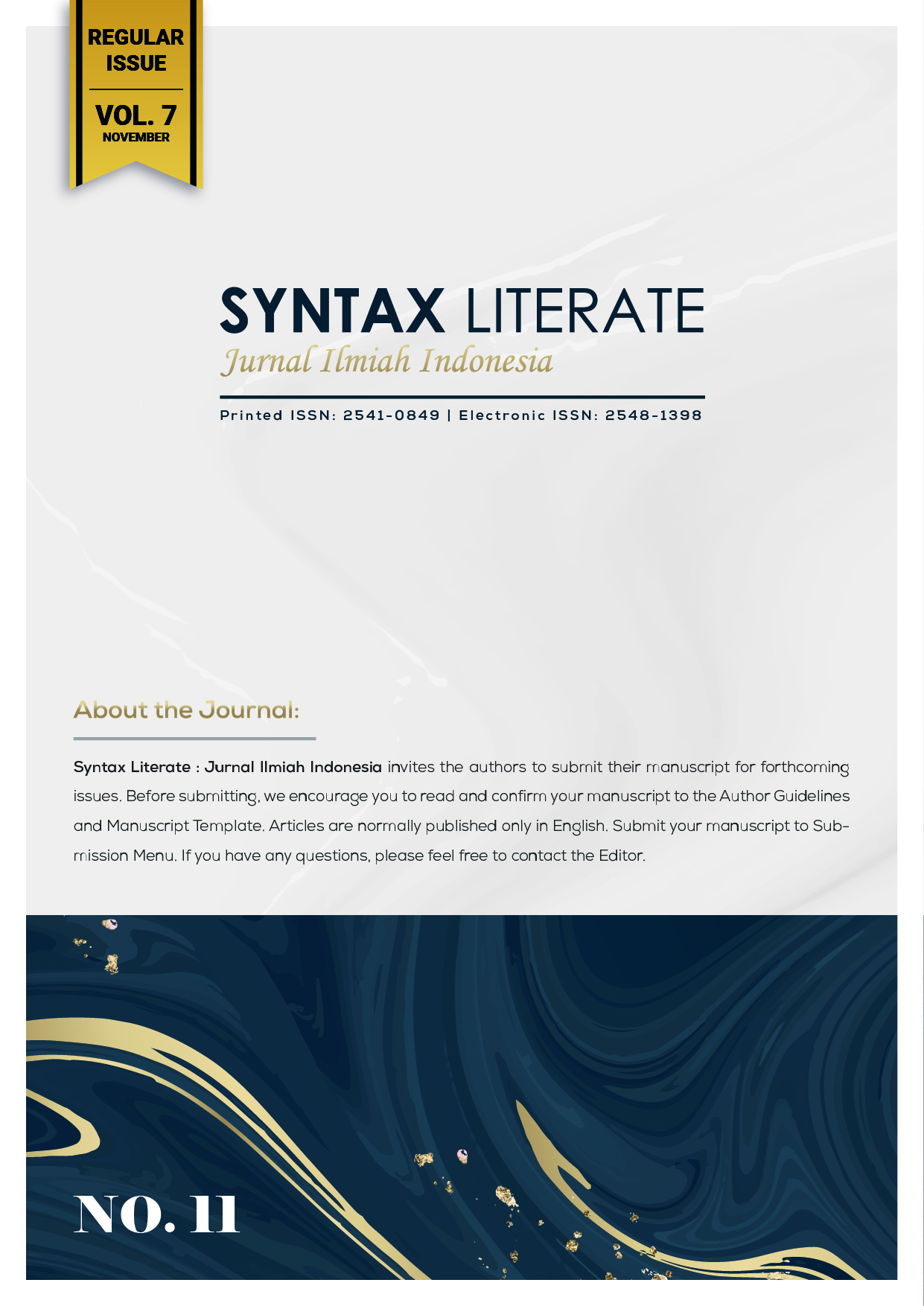Pembagian Aktivitas Dan Faktor Pembentuk Relasi Sosial Dalam Keluarga Perempuan Ojek Online Maxim Di Kota Makassar
Abstract
This study aims to analyze the distribution of activities and the factors that form social relations in the families of Maxim online motorcycle taxi women in Makassar City. The research method used is qualitative with descriptive research type. Determination of research informants by purposive sampling where the research informants were 9 (nine) people consisting of women who were online motorcycle taxi drivers, families of women online motorcycle taxi drivers and the online motorcycle taxi community maxim. The results showed that the distribution of activities in the family of Maxim online motorcycle taxi women consisted of the division of production activities, reproductive activities and social activities. Production activities are carried out together in the family where there is mutual cooperation to earn family income. In reproductive activities there is a division of labor between husband and wife. The next activity is social activity, where men are more involved in activities related to public affairs, while women are involved in matters related to domestic activities. Factors forming the social relations of women on Maxim online motorcycle taxis are shown by the existence of economic activities to increase insufficient family income, forcing women to work. Meanwhile, cultural factors are still patriarchal that place women in gender discrimination so that they get a negative stigma in society. While the education factor that makes women's rationality is formed is looking at their social conditions.
Downloads
References
gojek-layanan-transportasi-online- paling-populer-di-masyarakat
Bungin, B. (2011). Penelitian Kualitatif.
Jakarta: Prenada Media Group.
Faton, A. (2011). , Metodologi Penelitian dan Teknik Penyususna Skripsi. Jakarta: Metodologi Penelitian dan Teknik Penyususna Skripsi.
Kumparan. (2020, April 19). Diambil kembali dari Organisasi Ojol: Ada 4 Juta Driver Ojol di Indonesia: https://kumparan.com/kumparantec h/organisasi-ojol-ada-4-juta-driver- ojol-di-indonesia- 1tBrZLEXOEI/full
Maelani, A. (2015). Konsep Pola Asuh Munif Chatib Dalam Buku yang Berjudul Orang Tuanya, Skripsi. Yogyakarta: Universitas Islam Indonesia.
Maxim. (2022). Jumlah ojek online maxim di Kota Makassar. Makassar.
Noor, J. (2103). Metodologi Penelitian: Skripsi. Jakarta: Kencana.
Oktaviani, D. C. (2019). Analisis Perbandingan Kualitas Pelayanan, Harga dan Kepuasan Konsumen Pengguna Layanan Gojek dan Grab. Jurusan Ekonomi Syariah Fakultas Ekonomi dan Bisnis Islam Institut Agama.
Parsons, T. d. (1976). Socialization and Interaction Process. London: Routledge, Kegan & Paul.
Rokhmansyah, A. (2016). Pengantar Gender dan Feminisme. Yogyakarta: Garudhawaca.
Siyoto, S. S. (2015). Dasar Metodologi Penelitian. Yogyakarta: Literasi Media Publishing.
Sugiyono. (2016). Metode Penelitian Kuantitatif, Kualitatif dan R&D. Bandung: PT Alfabet.
Widowati, H. (2019, September 19). Databoks. Diambil kembali dari Inilah Potensi Pendapatan Transportasi Online dari Masa ke Masa :
https://databoks.katadata.co.id/data publish/2019/09/19/inilah-potensi- pendapatan-transportasi-online- dari-masa-ke-masa
Copyright (c) 2022 Ariani Magfirah, Rahmat Muhammad, Nuvida Raf

This work is licensed under a Creative Commons Attribution-ShareAlike 4.0 International License.











